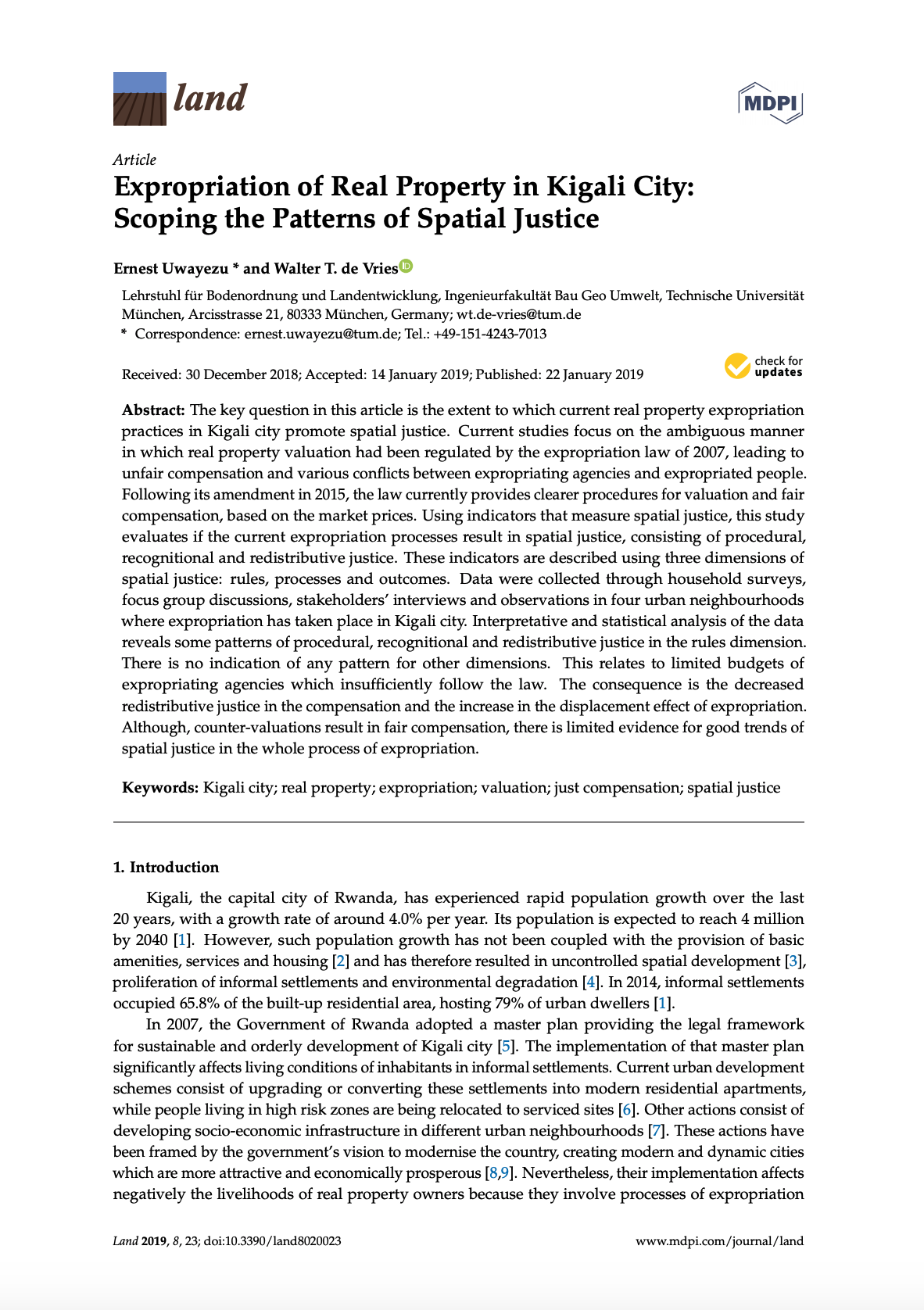Resource information
The key question in this article is the extent to which current real property expropriation practices in Kigali city promote spatial justice. Current studies focus on the ambiguous manner in which real property valuation had been regulated by the expropriation law of 2007, leading to unfair compensation and various conflicts between expropriating agencies and expropriated people. Following its amendment in 2015, the law currently provides clearer procedures for valuation and fair compensation, based on the market prices. Using indicators that measure spatial justice, this study evaluates if the current expropriation processes result in spatial justice, consisting of procedural, recognitional and redistributive justice. These indicators are described using three dimensions of spatial justice: rules, processes and outcomes. Data were collected through household surveys, focus group discussions, stakeholders’ interviews and observations in four urban neighbourhoods where expropriation has taken place in Kigali city. Interpretative and statistical analysis of the data reveals some patterns of procedural, recognitional and redistributive justice in the rules dimension. There is no indication of any pattern for other dimensions. This relates to limited budgets of expropriating agencies which insufficiently follow the law. The consequence is the decreased redistributive justice in the compensation and the increase in the displacement effect of expropriation. Although, counter-valuations result in fair compensation, there is limited evidence for good trends of spatial justice in the whole process of expropriation.



